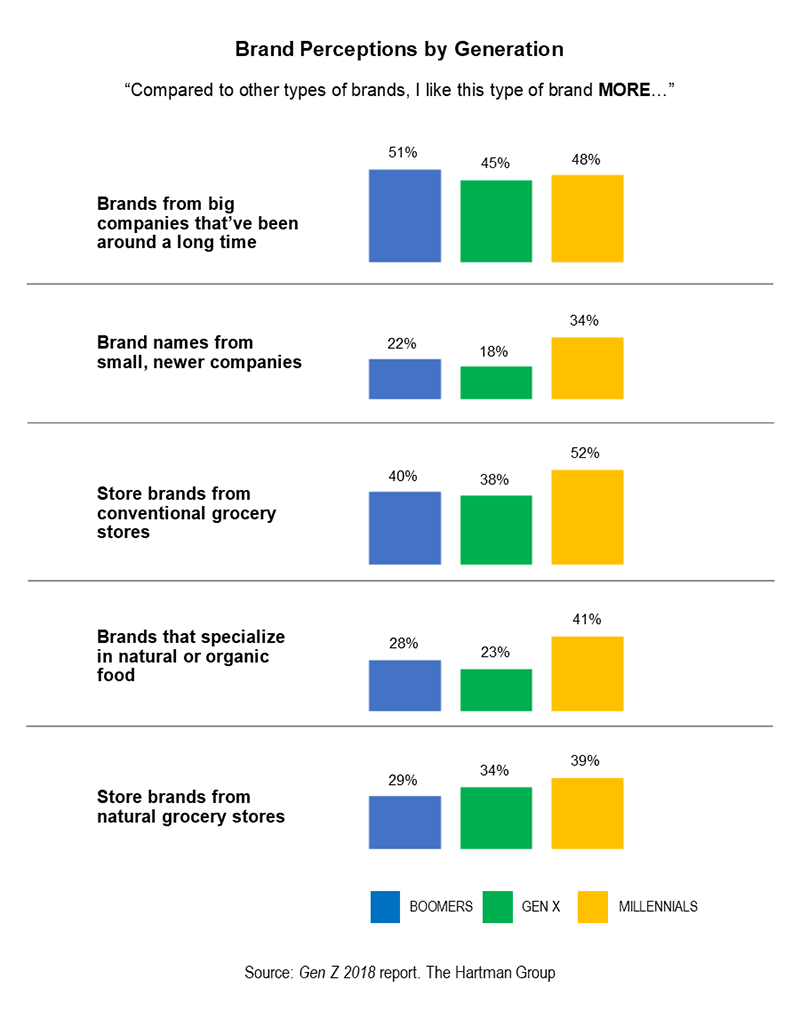
By the dawn of the next decade, one in every five U.S. residents will be retirement age, according to the U.S. Census bureau’s 2017 National Population Projections. Imagine the significance of this: It means that for the first time in America’s history, older people are projected to outnumber children. By 2030, all Baby Boomers will be older than age 65. According to the Bureau’s forecast, by 2035, there will be 78 million people 65 years and older compared to 76.7 million under the age of 18. We are indeed living in a very transformative age.
As with everything else they have touched, Boomers have transformed the imagery, lifestyle and experience of aging in ways many Americans today are still trying to comprehend. Today’s Boomers are blazing the trail for the younger generations to follow as they age.
Baby Boomers have left an indelible imprint on the food and beverage marketplace. Boomers have been sandwiched between an era largely framed by tradition and institutionalized expectations and an era driven by the notion of more individualized choice and freedom from such traditions. Boomers were at the leading edge of many of contemporary food and beverage trends, not the least of which was the desire — and demand — for fresh, less processed foods and beverages.
Not only have Boomers led the movement toward fresh, they have also shaped it. Reflecting their maturation through the sweeping social and political changes of the last 50 years, Boomers have forged and shaped the growth of the organic market as well, underscoring the fact that they are a unique aging generation when it comes to their approach to food.
It is important to understand the connection Boomers are making between food and health, and an overall awareness of the effects of foods and beverages in terms of how consumption makes them feel.
Relationship With Food
Boomers perceive food as catalytic to one’s well-being and future health. For this generation, food provides a much-desired sense of everyday control in minimizing the specter (or reality) of chronic health conditions and maximizing the quality of their future, for themselves as well as their children.
Boomers believe higher-quality ingredients are more effective as nourishing a “seasoned body” than hyper-functionalized foods. Healthful snacking cueing “real food” (with a bit of permissible indulgence) has become as culturally relevant as mealtime. The bottom line for Boomers: higher-quality food equates to healthier food.
In addition to the larger aspirations and goals described above, there are clear product trends emerging as Boomers engage in what it means to eat more healthfully. What types of brands do Boomers prefer compared to other generations?
As the following chart shows, legacy brands appeal to Boomers, who tend to prefer them to store brands and, compared to Millennials, Boomers are less likely to be interested in natural/organic brands and private label from natural food retailers.

Beverage Preferences
The combination of relaxed norms around eating and drinking and the increased importance of health and wellness in our food and beverage choices has expanded the roles that beverages play in our everyday lives. In considering the health effects of beverages, Boomers are more concerned about calories and less interested in functionality.
Consumers use beverages as an easy and relatively inexpensive way to treat themselves and others. Many enjoy scanning the beverage aisle or drinks menu for something interesting.

While price certainly plays a role in determining beverage selection, most consumers are not influenced by price alone. When shopping for beverages, Boomers prioritize taste over any other criteria.

As older consumers continue to look for ways to better themselves or improve the quality of their lives, they will affect the food and beverage industry in new ways. Time is becoming increasingly important to them, which translates into more conscious planning and more careful choices that express their values and aspirations. This aging population has many options from which to choose, and they are looking for more than just a particular retailer, restaurant, product or service. They want their purchase to count: to satisfy mental, emotional and even spiritual needs as well. They are willing to be adventurous and experiment, which opens many doors for the food companies that cater to them.
